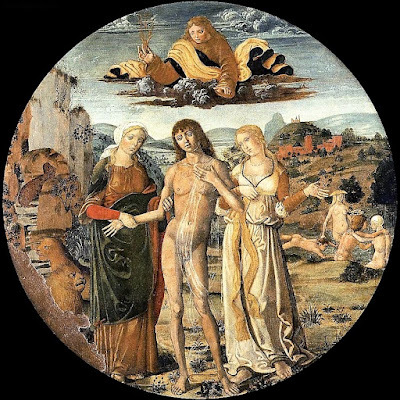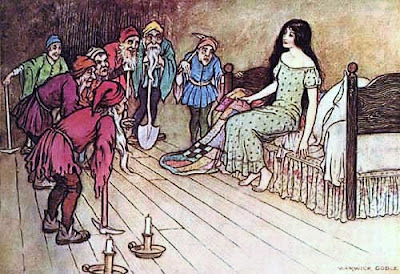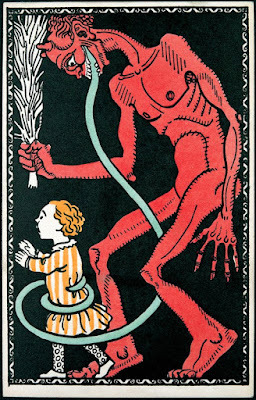Stephen Roney's Blog, page 68
October 24, 2023
The People Shortage

I got a quick lesson in economics the other day. Someone was wondering why clay for crafting was so expensive, and why it was shipped in from Ontario. After all, there are rich clay deposits here in New Brunswick. And had it explained to them.
It’s all due to underpopulation.
You can mine clay here, but it must be processed. By the time you get it to Ontario, it cannot compete there with the cost of Ontario-mined clay. But the local market is not large enough to support the cost of a processing plant.
And so, historically, industry after industry has pulled up stakes and moved to Central Canada.
The Canadian Atlantic Provinces are generally underdeveloped, because they are too far from markets. Granted, they are closer to Europe; but transportation by water is cheaper than by land. It still makes most sense to ship to and from the big markets of Central Canada through the St. Lawrence Seaway. I saw the same thing in the BC interior; vast stretches of what could be fertile land, unused or left in forest because too far from any large market.
I have heard the same problem has kept Latin America historically poor.
The obvious solution is to get more people living in Atlantic Canada: then the economies of scale would make it worthwhile to mine that clay, to grow those vegetables, to be used or consumed locally.
We have been fed the lie for many years that “overpopulation” leads to poverty. Since each individual human, on average, produces more than they consume, the reverse is true. Cities are generally more prosperous than the countryside, and young people do not pull up roots and head to a small town to make their fortune. Some of the most densely populated countries are also the richest: Singapore, Bahrain, Korea, Netherlands, Japan. Some of the least densely populated are the poorest: Mongolia, Western Sahara, Namibia.
'Od's Blog: Catholic comments on the passing parade.
October 23, 2023
The Job of Sex
 The young Herakles chooses between virtue and pleasure
The young Herakles chooses between virtue and pleasureI recently participated in a public poetry reading. There were nine poets featured. Three were long in the tooth. Six were young, in their twenties. Five of these six openly identified on the program or during the performance as LGBTQ.
This seems to be the trend: the number of young people declaring themselves gay or transgender is growing exponentially.
One thing is clear, at least: people are not “born this way.” You cannot have an epidemic of a genetic condition.
It is happening because sex is boring.
The urge to reproduce is powerful. That first time having sex is powerful, and tends to bond emotionally. But once you separate sex from reproduction and emotional commitment, and make it about physical pleasure, it soon loses its magic.
Then one of two things happen. Many or most move on to other interests. In Japan, they have always been into rather kinky sex in youth. At the same time, after the kids are born, most Japanese marriages become sexless. But in our current society, sex has been glorified as almost the purpose of life. We have separated sex from love for several generations; the slogan at the recent LGBTQ clambake in a local park, “Love is louder than Hate” is a lie. Sex is not love, and conflating the two reduces others to objects existing for your pleasure.
And then it can be like an addiction: trying to find some new twist and heavier and heavier doses in order to recover that original thrill. Hence not just promiscuity, but sexual experimentation. Sex with other men; sex in the role of the woman; sex with pain; sex pretending to be an animal …. At some point, sex with children inevitably comes to mind.
“What good thing is yours, madam, or what pleasant thing, if you do nothing to earn them? You do not even wait for desire, but fill yourself with all things before you crave them. …. You rouse your lust by many a trick, when there is no need nor end in children. Thus you enslave your friends, waxing wanton by night, consuming in sleep the loveliest hours of day.” – Xenophon, “Herakles at the Crossroads.”
The problem has grown quickly in recent years with the easy availability of online porn. The young, impelled to it by instinct, are bound to get jaded with normal sex at an early age. Some lose interest in sex; and so in reproducing. And that is a growing problem for society. Others become sex addicts, often publicly advertising their availability, and will, sooner or later, be coming for the children…or dispensing with the requirement for consent.
'Od's Blog: Catholic comments on the passing parade.
October 22, 2023
Diversity is Not Our Strength

Yesterday in Saint John, there were two opposing demonstrations scheduled: the second One Million March for Children, protesting sexual orientation and gender ideology in the schools, and “Love is Louder than Hate,” demanding sexual orientation and gender ideology in the schools. All over Canada, there are large demonstrations protesting the genocide of Jews by Hamas in Israel, and competing demonstrations protesting the genocide of Arabs by Israel in Gaza. And this on top of the longstanding demonstrations for and against abortion.
Opposing demonstrations are not in themselves alarming. But these positions seem irreconcilable. There seems to be no room for calm debate or compromise. After all, to the one side, it looks like the other side is committing genocide. To one side, it looks like the other is trying to harm their children.
It looks like civil war is coming inevitably closer all the time, and seems the necessary ultimate result. “A house divided against itself cannot stand.” Sooner or later, here or somewhere, competing demonstrations are going to clash violently, there will be a body count, there will be calls for vengeance, and the fighting will spread. One thinks of “Bleeding Kansas.”
The underlying problem is that we have lost or abandoned all our shared values or principles. Any society needs shared values to function: some underlying set of shared premises from which to argue and eventually come to an agreement. We used to all agree, or nearly all agree, on Judeo-Christian principles and the principles of liberal democracy. Now a large portion of the population no longer do.
The only way to prevent a civil war is either a wholesale return to these values, or general adoption of some new set of shared premises. Marxism offered one, based on material progress and “dialectical materialism”; but, leaving aside its philosophical flaws, Marxism has surely by now been discredited in practice. Bad things happen wherever it is tried. Nazism offered one, a new morality based on the Theory of Evolution; but I think we can agree that did not turn out well. Islamism is one current candidate; but the state of the Muslim world does not inspire confidence.
I vote for a return to Judeo-Christian principles and the principles of liberal democracy. To be clear, that means restrictions on abortion, absolute preference for Christian and Jewish over Muslim immigration, and no mention of sexual orientation or gender ideology in the schools.
'Od's Blog: Catholic comments on the passing parade.
October 21, 2023
The Mirror Shattered

It is not generally understood, but Western civilization shattered sometime in 1917.
Son of man,
You cannot say, or guess, for you know only
A heap of broken images, where the sun beats,
And the dead tree gives no shelter, the cricket no relief,
And the dry stone no sound of water. – T.S. Eliot
Before this, the culture was a mirror, in which you could see the face of man. This is Shakespeare’s “Mirror held up to nature.”
Since then, what do you see?
Only a shattered land, a shattered landscape, only shards of mirror reflecting each another’s emptiness.
'Od's Blog: Catholic comments on the passing parade.
October 20, 2023
The Ghost of Future's Past
Had occasion in the course of my teaching to watch a video of the Futurama ride at the GM pavilion, New York Worlds’ Fair, 1964-5. I was there at the time, in 64; I remembered some of it. But this time I was struck by how our attitude towards the future then was so different from today. GM was confident the future would be abundant, thanks to improvements in technology. Progress marches on! Roads through the tropical jungles, bringing goods to market! Submersibles reaping the limitless harvest of the seas! Vast cities of light.
Nowadays, rather than celebrate technology, we fear it as the enemy. Even though technology has indeed brought us many marvels since 1964: the Internet, the smart phone, longer lifespans, abundance of food from the green revolution. So why did we sour on it?
Granted, the GM exhibit might not have been fully representative of all the voices of 1964. Or rather, 1962 or so, when the exhibit was presumably designed. This was big business talking. But the ride was highly popular during the fair, a reprise of one of the most popular pavilions of the 1939 Fair, and did not get any pushback at the time for overplaying the wonders of technology. It seemed to express the broad consensus. Science conquers all.
I have long thought that western civ lost its nerve in the carnage of the First World War. I think of Eliot’s “The Waste-Land” emerging at about that time. Or W.B. Yeats’s discovery that “We are but weasels fighting in a hole.”
But watching this video, I had another thought. It seems to be our view of technology in particular that has changed. This seems to be the pivot.
Perhaps the underlying cause, even the cause of WWI in the first place, is what Alvin Toffler called future shock. Since about the second half of the 19th century, and especially with the personal computer revolution beginning circa 1980, things have been changing rapidly due to technology. In effect, none of us lives any longer in the land or in the culture we were born into. This can cause, and perhaps has caused, a general trauma, a sense that we are losing control of our lives. “Stop the world; I want to get off!” Perhaps this is seen in Kipling’s 1897 lines:
For heathen heart that puts her trust
In reeking tube and iron shard
Already, to him, technology is the enemy.
Toffler’s “future shock” is based on the known phenomenon of culture shock.
I know a little bit about culture shock. Alarmingly, governments and medical establishments seem not to. I have lived through culture shock more than once. It is no trivial thing.
For the first little while in a radically new culture, say the first three months, you are on vacation. Everything is new and wonderful. What you feel the most is that all the old constraints of daily life back home are gone. All the weary chains of habit and social convention that we secretly resent are gone, and we want to run naked in the woods. We want to hook up. First of all, nobody knows you, so you need not worry about your reputation. Screw up, and you just take the plane home. And the first impression when faced with new rules is that there are no rules. You can go ahead and just do as you want; as you always wanted.
This crazy optimism somewhat describes, in cultural terms, the Fin de Siecle, the Edwardian period, the period just preceding the First World War. The automobile, the airplane, the moving picture, the phonograph, were rapidly transforming individual lives. In politics, “progressivism” was born: the application of science and technology to society would solve everything.
For another good representation of this state, see Margaret Meade’s “Coming of Age in Samoa.” Any old foreign hand should have seen she was in the first stage of culture shock. But for decades, it was taken as solid anthropological work. Yeah, everyone In Samoa just had sex whenever they wanted. None of our Western hangups.
This is also why “exotic dancer” is a synonym for “erotic dancer”: the nearest foreign country is usually imagined to allow free love. Absurdly, this was the reputation of the Muslim Middle East in the Victorian Era. Those guys with the women in abayas. Even in my youth, the most famous stripper in Montreal went by the name “Fawzia Amir.”
Ironically, the same culture shock leads young Muslim men coming to northern Europe to think it is okay to rape young local women. After all, here in the “Wicked West,” anything goes.
In England, syphilis was long known euphemistically as the “French pox.” In France, it was called “the English malady.”
And so it goes, as Billy Pilgrim would say.
An expat can get themself in a lot of trouble during this stage.
Now imagine a government that welcomes large numbers all at once from a quite different culture. What do you think might happen? But I digress….
But the next stage is worse. After about three months, in the usual course of expat life, you come to the impression that the rules no longer apply both ways. These foreigners have no morals; and they are insane. Nothing here makes sense. And this is not a vacation; you realize you cannot go home again. You are stuck here.
At this point, a large proportion of expats sink into a state of depression, and never recover. They cannot bear to go out in the street. They want to stay in their apartment, the only place they feel safe. Or they begin to haunt the expat bars, where they sit there all evening getting drunk and complaining to other drunken expats about this godforsaken hellhole. Every foreign station has such an expat bar.
A college I worked in, transported virtually wholesale from Canada, after a few months redesigned the “learning centre” to look like Fort Apache, with the foreign teachers on raised platforms behind high counters. This was all psychological; there was no threat of violence or threat on campus. It was soon all “us” and “them.”
And this may explain the First World War, and the Second. They were nativist outbreaks, nationalist outbreaks of paranoia at how their distinctive culture was threatened by this rapid change.
Similarly, Darwin chronicled in “The Descent of Man” how, whenever European adventurers encountered some primitive people, the primitives seemed to stop working and reproducing. They started to drink heavily, and their numbers rapidly declined. Everyone was experiencing culture shock at once’ everyone was depressed. And for groups like the Canadian “First Nations” or the Australian aborigines, this state of culture shock and depression has continued to this day, for centuries. One might suggest that the same culture shock lingers among American blacks, their ancestors suddenly uprooted from tribal cultures in Africa. That’s how severe culture shock can be, if the cultures are sufficiently different.
Now imagine again what might happen if you rapidly introduce into your country large groups of people from a widely different culture.
A not insignificant proportion of expats undergoing culture shock have a psychotic break. When nothing around you makes sense anymore, almost anything you imagine might seem true. I have experienced this myself briefly once or twice. In some it seems to be more serious, and last longer. And some may act out their fantasies in dangerous ways. There are stories in every expat enclave of how old Tom or Bertha went off, and did something like take all their clothes off in front of the class. Or decide that their daughter was the current incarnation of a Bodhisattva.
And this is what we may be seeing now throughout Western society. Nobody can count on the old verities any more: marriage, children, the female role, the male role; even the accepted meaning of words; even the meaning of such words as pronouns. A growing proportion of us get depressed and want to retreat to some “safe space,” or start acting in destructive ways, becoming violent; treating neighbours as deadly enemies. A certain proportion take to alcohol and drugs. Others, in fear , retreat to group think, become NPCs, increasingly afraid of any new ideas. A certain proportion imagines that now everything is permitted, “conventional morality” no longer applies, and they can do whatever they want. And almost all of us now sit around complaining about technology and imagine it is destroying the world. It’s causing pollution! It’s using up all available resources, and soon we will starve in the dark! It’s causing climate change! Climate change will soon kill us all!
Rather than being able to manage matters and reassure, those in charge are the most fully culture shocked and hysterical. They are most threatened by the earth moving unpredictably beneath them. Their status depends on the status quo. This explains why governments and big corporations are rapidly getting oppressive and controlling: wanting censorship, wanting to arrest development with more and more regulation, imagining bogeys under every bed.
How do we escape this? Faith.
'Od's Blog: Catholic comments on the passing parade.
October 19, 2023
Restore Canada's Reputation Worldwide
---Elect Pierre Poilievre.
October 18, 2023
The Wedding Feast

And Jesus answering, spoke again in parables to them, saying:
2 The kingdom of heaven is likened to a king, who made a marriage for his son.
3 And he sent his servants, to call them that were invited to the marriage; and they would not come.
4 Again he sent other servants, saying: Tell them that were invited, Behold, I have prepared my dinner; my calves and fatlings are killed, and all things are ready: come ye to the marriage.
5 But they neglected, and went their own ways, one to his farm, and another to his merchandise.
6 And the rest laid hands on his servants, and having treated them contumeliously, put them to death.
7 But when the king had heard of it, he was angry, and sending his armies, he destroyed those murderers, and burnt their city.
8 Then he saith to his servants: The marriage indeed is ready; but they that were invited were not worthy.
9 Go ye therefore into the highways; and as many as you shall find, call to the marriage.
10 And his servants going forth into the ways, gathered together all that they found, both bad and good: and the marriage was filled with guests.
11 And the king went in to see the guests: and he saw there a man who had not on a wedding garment.
12 And he saith to him: Friend, how camest thou in hither not having a wedding garment? But he was silent.
13 Then the king said to the waiters: Bind his hands and feet, and cast him into the exterior darkness: there shall be weeping and gnashing of teeth.
14 For many are called, but few are chosen.
This was the reading at last Sunday mass.
Whatever else it might reveal, it puts to bed the notion of many, including Bishop Barron, that there might be nobody in hell, that we can at least hope that everyone gets to heaven. Rather, “few are chosen.”
The first and most obvious puzzle: why would all the respectable people, the upstanding citizens, not want to come to the king’s feast? Why would they treat the servants who delivered the invitation badly, even put them to death?
This is the anomalous detail always needed in a parable or allegory to tell us we are not talking literally. For a literal marriage feast, this would make no sense. But if this refers to the persecution of the prophets, it fits with the marriage feast really being the kingdom of God. The prophets call us to God’s kingdom, and they are inevitably persecuted for it. Just like Dostoyevsky’s Grand Inquisitor, those in authority in this world are fundamentally opposed to anyone speaking truth directly, because it upsets the status quo, or risks upsetting the status quo, and so threatens their status. They are the status quo.
Of course, their attitude is illogical. They are refusing a feast, and ensuring their destruction. But evil is always illogical.
The second puzzle: according to the parable, “both bad and good” enter heaven. Can that be right?
But that is why we have part two of the parable, with the man not wearing a wedding garment being cast out. There is a second weeding out. Only at this point are people “chosen,” as opposed to choosing themselves whether to come. And not just this one man is rejected; “few are chosen.”
The first triage is genuinely seeking truth—these are the people who are summoned from the highways, and who answer the call. They are the honest seekers; those who refuse the call are those who do not want to hear the truth. But once hearing the truth, once in God’s presence, the obligation to do God’s will is apparent. This is the second triage: are you prepared to dress, and act, accordingly? And so at this point one can still be rejected, and many are.
Why a marriage feast? Who is getting married?
You are.
Each individual soul is getting married to God. It is a two-step process, the engagement and then the full commitment.
'Od's Blog: Catholic comments on the passing parade.
October 17, 2023
Snow White and the Evil Queen
Delighted to discover that Daily Wire, aka “Bent Key,” has announced a live-action remake of Snow White, starring Brett Cooper. This is just so smart and funny at first I could not believe it. Best troll ever. And they released the announcement, complete with teaser trailer, on the 100th anniversary of the founding of the Disney company. It’s too good.
But it’s real.
I hear Disney is threatening to sue. They can’t. They’ll lose. Snow White is public domain. They do not own the story; they took it themselves from the Brothers Grimm. All Bent Key needs to do is make sure that Snow White’s dress is different from that in the original animated feature, and the Seven Dwarfs have different names. Everything else is from Grimm.

Brett Cooper is perfect for the role: naturally pale skinned and dark-haired. She fits the role better than Disney’s Rachel Zeigler. She is also a skilled actor. She has a big fan base from podcasting. I bet a lot of people will want to see the movie because she is in it.
People who loved the original animated feature, or the Grimm’s Fairy Tale, are angry at Disney for changing the characters and story line, for attempted indoctrination of children, and for expressing contempt for the original. Many will be desperate to pay to see the Bent Key version just to show their dssatisfaction with Disney.
Bent Key slyly refers in the trailer to the “true love” theme of the original story;
“Once upon a time, in time a prince would come
Once upon a time, but now that time is gone…”
- the “one day my prince will come.” Which Disney’s Rachel Zeigler scorned and said would not be in the Disney remake.
The teaser also opens with the sound of a cuckoo or cuckoo clock—emphasizing the tale’s German origins, deleted by Disney’s version.
So this will be the REAL Snow White—and with a lot of luck, in future Snow White may be a Bent Key, rather than a Disney, franchise in the minds of the public.
Bent Key will not have the production budget Disney has. But how important is that in this story? I see no need for special effects. Just costume and makeup. I suspect many others, like me, are tired of all the computer-generated special effects anyway. They’ll have to find seven dwarf actors; but they presumably cost no more than other actors. Scenery needed is a forest, a rustic cottage with small furniture, some scenes that look like a room in a castle; child’s play. The biggest issue I see is that they need to compete musically to become the “real” Snow White; and they do not have access to the original songs from the animation, as Disney does. They’ll have to find some first-rate songwriters.
Even if the quality is not there, it’s a brilliant troll.
'Od's Blog: Catholic comments on the passing parade.
October 16, 2023
Devil Cults

Friend Xerxes, the left-wing commentator, for some reason this week hearkens back to the Satanic child abuse scares in Saskatchewan back in the eighties and nineties. And his conclusion seems to be that the fatal error that led us astray was believing in the Devil.
“Unfortunately, there’s no tab in the corner of our mental screens to ‘Hide Satan.’”
Wanting a tab on your mental browser to “hide Satan” sounds like whistling past the graveyard: “if I don’t look, he can’t see me.” Denying evil exists is not a wise strategy; but a sadly common one.
The Saskatchewan hysteria, and the paranoia all around the world for a couple of decades over imaginary child abuse cults, was founded on two gross fallacies: a belief in repressed memories, and the claim that “children never lie.” (Unfortunately echoed more recently with the mantra that “women never lie about rape.”) These two obviously false claims led people into the hysteria. I remember, circa 1984, proposing in a Banff workshop a book arguing against the idea of repressed childhood memories, and getting shock and horror from a female member of our group. Didn’t I care about child abuse? Was I such a monster?
This was also the first time I ever heard of a speaker being shouted down on a Canadian college campus: some speaker at McGill pointing out that there was no evidence for repressed memories. I would not have thought such a thing possible; now it is the norm.
People only want to shout things down when they are true: never when they are false…
But the idea of repressed memories obviously defied common sense. If something genuinely traumatic happens to us, we do not forget it. Just the reverse: the memory haunts us, and we find it hard to turn away from it.
And nobody who has been around children can honestly believe kids never make things up. Ask them who took a cookie from the cookie jar. Small children even start out having difficulty distinguishing imagination from reality.
Why did people want so badly to believe in ritual child abuse rings? So badly that they would rid themselves of basic reason to do so, and refuse to listen to argument? I suspect it was projected guilt over abortion, fully legalized at almost the same time. People needed a scapegoat, some other, so they could still think of themselves as loving and defending children despite supporting abortion.
Significantly, the pedophilia hysteria broke out at about the same time: the panic about pedophile priests, pedophilic orphanages, the idea that pedophiles once convicted must be identified to all neighbours whenever they moved, the idea that they must be either chemically or physically castrated, and can never be rehabilitated.
Of course, pedophilia is a problem; but I can recall how much more casually it was thought of and dealt with in my youth. Something had changed, and it was not the pedophilia.
So too, I suspect, how much more protective we have become of our children in general, not allowing them to do anything without supervision. Giving them “safe spaces” wherever they go, never letting them be “triggered.” It is all overcompensation for abortion. Although the moment our own interests are impacted, the kids are a ready sacrifice: get them all vaccinated, shut down the schools, although the vaccine is more dangerous to them than the virus, and the hiatus in their education is liable to harm their future. After all, otherwise they might infect adults.
The residential schools hysteria is a continuation, a culmination, of this same mass psychosis. The accusations are all the same as the Satanic cult panic: sexual abuse, torture, children being secretly buried in mass graves, and so forth. The projection is perfect: the guilt over abortion gets assigned to those who object to abortion. Most notably the Catholic Church, which ran most of the schools.
No surprise that no bodies turned up in any mass graves.
The residential schools charges rely on the same evidence as the earlier satanic cult legends: the tacit assumption that Indians, being childlike innocents, can never lie—the romantic myth of the “noble savage.” That childhood memories are reliable—memories from childhood are much of the “evidence.” And that indigenous “oral history” is reliable—in any other context, the term for this would be “urban legend.” Many of the charges can indeed be found elsewhere as urban legends.
And of course, it is about the children. That hints at its origin in guilt over abortion. Although Indian children on reserve are being driven to suicide, and young Indian women keep going missing, and we continue to allow that to happen instead of dealing with the problems of the Indian family.
Whether the Devil actually exists is not relevant here. It will not do to doubt there actually are such things as Satanic cults. That is a matter of record: the Hellfire Clubs of the 18th century, Aleister Crowley and the Golden Dawn, Anton LaVey and the Church of Satan, Gnosticism tracing back to the early centuries AD, Hindu Shakti cults, Haitian voodoo, and so on. To shift the question from the existence of child abuse to the existence of Satan is a red herring.
Of course, child abuse really does happen, more often than we want to admit. So does child sexual abuse, sadism, and pedophilia. So does evil in general. To recognize as much is not hysteria. Refusing to recognize it is hysteria. Nor is it hysteria to believe in Satan as a personal spirit, with an independent will; as have most of the greatest minds of history.
The hysteria, the paranoia, is in what we accept as evidence.
'Od's Blog: Catholic comments on the passing parade.
October 15, 2023
There Is No Subconscious

Thanks to Freud, the concept of a “subconscious mind” has seeped into our culture. People even hail it as an important scientific discovery, similar to the law of gravity or theory of evolution. But the concept is self-contradictory.
It posits a part of self that is independent of self (“ego”). It posits a part of consciousness of which we are not conscious.
These characteristics are definitive of “other.”
There is no subconscious mind.
The concept is constructed from our experience of memory. Memories emerge into consciousness from some unknown place, where they abide when we are not thinking of them.
But before Freud muddied the waters, we had Plato’s concept of the ideal forms, the Buddhist concept of a “storehouse consciousness,” Coleridge’s “primary imagination.” Put simply, an objectively existing spiritual world. And this is the only coherent explanation.
The fact that memories continue to exist whether or not we or anyone are thinking of them, identifies them as not subjective, part of ourselves, but independent objects of consciousness. This is simply true by definition. Just as the fact that the corner lamppost seems to exist whether or not we are looking at it, demonstrates that it is not a part of us and our consciousness, but an independent object.
If the memories we encounter seem by and large to be entirely personal, that does not make them a part of ourselves. Our sense experiences are also personal: we see only what is around us in space. They may be only a small part of a wider world, just as Africa exists, or Alpha Centauri, although we have never seen it.
But Freud actually finds that memories are not personal; in the house of memory, there seems to be wills operating independent of our own. The subconscious makes us think, say, even do things contrary to our will.
We always knew this too: these wills are the independent spiritual entities identified worldwide as angels, demons, fairies, gods. We know they exist on exactly the same evidence that we know other human or animal spirits exist, that the things we see are not all simply objects: because they are clearly not subject to our will, but follow their own wills.
Just to make the matter clearer, or more confusing if you hold to the Freudian formula, Jung has demonstrated that we are capable of remembering things we have never seen nor heard. Dragons, for example, unicorns, phoenixes, vampires, zombies, and so forth. These are not individual memories, and not individual “imaginings” either; for the same creatures and characters recognizably appear in myths, legends, and folk tales all around the world.
The Freudian “subconscious” is just an alibi, a spooky tale told at bedtime to frighten off further questioning, an attempt to explain away the spiritual aspect of existence, because it contradicts the materialistic dogmas of scientism. But the thesis itself violates all the basic tenets of science as well as philosophy. One of which is that one must go with the simplest explanation to account for the facts.
Which, in this case, is the existence of a spiritual dimension that exists independently of the material.
'Od's Blog: Catholic comments on the passing parade.



